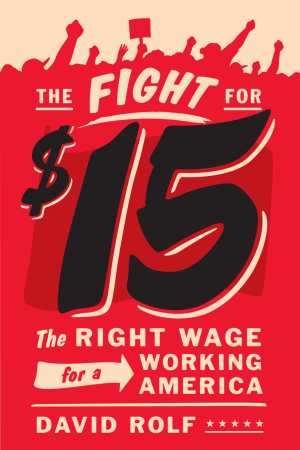The New Press Finds Success with Social Justice 'Books That Matter'

Ellen Adler, publisher of The New Press, said the July publication of the US Department of Justice’s recently completed Investigation of the Ferguson Police Department—a title likely to rate as a “must-have” for libraries—continues a company tradition.

Ellen Adler
A publisher’s nonprofit status often gives the false impression that the company operates on a shoestring budget, if not in deficit. The New Press, however, has had its share of sales success. And being a nonprofit also gives it the freedom to release titles that “should” be available in book format.
“Even before Ferguson, we’ve done some of these reports that are valuable to have in book form,” Adler said. The volume will include an introduction by Theodore M. Shaw, former president of the NAACP Legal Defense and Education Fund, who sits on The New Press board of advisers.
The Ferguson Report—an investigation into the 2014 shooting death of Michael Brown—was an ideal addition to a catalog that, since 1992, has featured an eclectic range of serious, intellectual work of often-underrepresented voices. The Press has long held an interest in social justice, including the 2012 release of The New Jim Crow: Mass Incarceration in the Age of Colorblindness, a top seller that has been described as pivotal both for its study of racism in the criminal justice system and for the company.
“Jim Crow really put us on the map,” Adler said. The title won numerous awards, earned rave reviews, landed author Michelle Alexander on The Colbert Report, and generated more than respectable sales numbers for an independent, nonprofit enterprise.
Books that Matter
“We’re well out of our start-up period,” Adler said, and the “middle-aged” company comfortably employs a staff of twenty-five and publishes about forty new titles each year that generate about $4 million in annual sales. The catalog reflects an eclectic list, fiction in translation, labor issues, human rights, ethnic and cultural studies, and several other categories.
“We were set up as a 501©(3), which was a little unusual,” Adler said. “For the kind of publishing we do the theory was: not everything we publish is able to make money. We didn’t want to not take on books that matter.”
At the same time, she said, “financial considerations” aren’t a factor in The New Press’s editorial decisions. About 80 percent of the revenue is from book sales with the balance coming from foundations, sponsors, and authors themselves. The late Studs Terkel and his wife, Ida, committed royalties from back-list New Press titles (including The Studs Terkel Reader, Hard Times and about a dozen others) to an author’s fund to help finance emerging voices.
Adler said the process of project selection and professional preparation has remained consistent. The New Press makes use of a board of directors composed of literary agents, journalists, attorneys, and experts in social justice arenas.
“We have an exciting editorial conversation each week,” Adler said. “Sometimes we’re considering manuscripts or proposals, other times we’re cooking up ideas. We often publish people who do things other than write and those books need a lot of TLC—‘Big Idea’ books where the process is critical, and we’re proud of taking time to do that.”
Success Through Specialization
“I don’t think of us as an ‘old-fashioned’ publisher, but that’s what we do,” Adler said. “The world has changed, but there’s a hunger and need for works of long narrative form.”
Perhaps one secret to the company’s success—and having reached “middle age” as a publisher clearly qualifies—is not drifting too far from its original mission. “We keep doing what we’re doing,” Adler said. “We’re still looking for original voices—some are well-established some are not—doing cutting-edge work on criminal justice, racial justice, labor issues.”
Adler said The New Press declines some genres—poetry, memoirs, and cookbooks—with a preference for sticking to their social justice guns. “You can’t be good at everything,” Adler said.


The New Press has published nearly one thousand titles with no signs of slowing down, and recent and upcoming catalogs offer solid examples of tackling social issues in ways that “only books will do.” A small sampling includes Integration Nation: Immigrants, Refugees and America at its Best, by Susan E. Eaton; The Fight for $15: The Right Wage for a Working America, by labor leader David Rolfe; and Kim Bobo’s critically acclaimed Wage Theft in America, recently updated with a new edition.
“We adapt when the market changes,” she said, noting that e-editions are released simultaneous with print copies, and that the marketing through e-mail campaigns and social media has been a tremendous boon, as was a 2009 distribution deal with Perseus Books: “A happy arrangement,” said Adler, which well positions the company to take advantage of a resurgence among independent book sellers.
“I tell people The New Press is the least cynical place I know,” Adler said. “There’s a lot of enthusiasm. Books are here to stay, they’re not going anywhere.”

James A. Mitchell is a veteran reporter and author of four books, including The Walrus & the Elephants: John Lennon’s Years of Revolution and But For the Grace: Profiles in Peace From a Nation at War. You can follow him on Twitter @jamesamitchell3.
James A. Mitchell
